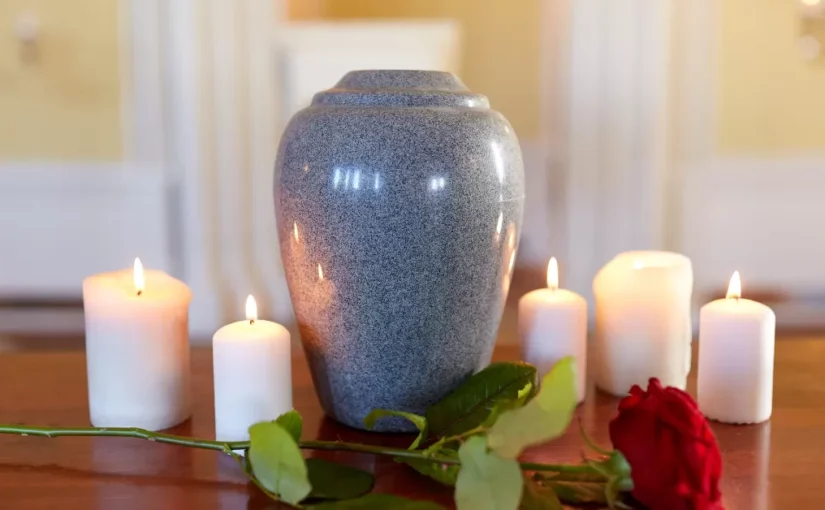Quick Answer
The Bible does not explicitly prohibit or command cremation. While burial was the common practice among Old and New Testament believers, cremation is not condemned. Christians have the liberty to choose between cremation and burial, keeping in mind that both methods eventually lead to the body’s decomposition. The resurrection of the body is assured regardless of the method of body disposition.
The question of whether cremation is acceptable for Christians is one that has gained prominence in recent years, especially as cremation becomes more common. This article aims to provide a comprehensive, Bible-based perspective on cremation, addressing historical practices, scriptural references, and theological implications.
Historical Context and Biblical References
Old Testament Practices
In the Old Testament, burial was the standard practice. Significant figures such as Abraham, Sarah, Isaac, Rebekah, Jacob, and Joseph were all buried (Genesis 23:19; 35:19; 49:31; 50:14). God Himself buried Moses (Deuteronomy 34:5-6), indicating divine approval of burial.
Cremation is mentioned occasionally, often in contexts of judgment or unusual circumstances. For instance, Saul and Jonathan were cremated because their bodies were mutilated by the Philistines (1 Samuel 31:12-13). Achan and his family were burned as a punishment for sin (Joshua 7:25). These instances do not establish a normative practice but highlight exceptional situations.
New Testament Practices
The New Testament also predominantly reflects burial practices. Jesus was buried in a tomb (Matthew 27:60-66), and early Christians, including Stephen, were buried (Acts 8:2). The New Testament does not provide explicit instructions regarding cremation, thus leaving the choice open to believers.
See also: Bible Verses about Cremation
Theological Implications
The Body and Resurrection
The Christian belief in the resurrection of the body plays a significant role in the preference for burial. Paul speaks of the body being sown in dishonor and raised in glory (1 Corinthians 15:42-44). Burial symbolizes this hope, likening the body to a seed planted in the ground that will one day be raised to new life.
However, cremation does not hinder God’s ability to resurrect the body. Whether a body has decomposed naturally, been cremated, or lost at sea, God can and will raise it imperishable (1 Corinthians 15:52; 1 Thessalonians 4:16).
See also: Bible Verses about Resurrection
Symbolism and Cultural Practices
Burial has traditionally been seen as a more fitting symbol of the Christian hope in resurrection. The imagery of sleep used for death (1 Thessalonians 4:14) and the historical rejection of cremation by early Christians who opposed pagan practices reflect this symbolism.
Nonetheless, cremation has practical considerations, especially in densely populated areas or where financial constraints exist. The essence of Christian teaching emphasizes that the ultimate fate of the body—resurrection—is secure regardless of the method of body disposition.
Practical Considerations
Economic and Environmental Factors
In many regions, cremation is chosen for its lower cost and lesser environmental impact. Burial can be prohibitively expensive and land-consuming, making cremation a viable option for many families.
Church Support and Community
Some suggest that churches could assist families in affording simple, Christ-centered burials to maintain the tradition of burial without financial burden. Encouraging less expensive, gospel-rooted funeral practices could also help shift focus from financial constraints to theological significance.
Conclusion
In conclusion, while the Bible predominantly reflects burial practices, it does not explicitly forbid cremation. Christians have the freedom to choose either method, with the assurance that God will resurrect their bodies regardless. The decision should be guided by personal convictions, practical considerations, and a desire to honor God.
References
- https://www.gotquestions.org/cremation-Bible.html
- https://www.thegospelcoalition.org/article/cremation-burial-choice
- https://www.desiringgod.org/articles/should-christians-cremate-their-loved-ones
- https://www.desiringgod.org/interviews/cremation-or-burial
- https://bible.org/question/what-does-bible-say-about-cremation
- https://www.gty.org/library/questions/QA180/what-does-the-bible-say-about-cremation
- https://www.gty.org/library/questions/QA177/does-the-bible-prohibit-cremation
- https://www.gty.org/library/sermons-library/70-50/bible-questions-and-answers-part-74
- https://www.compellingtruth.org/cremation-Bible.html
- https://www.neverthirsty.org/bible-qa/qa-archives/question/is-it-wrong-in-the-sight-of-god-to-be-cremated

